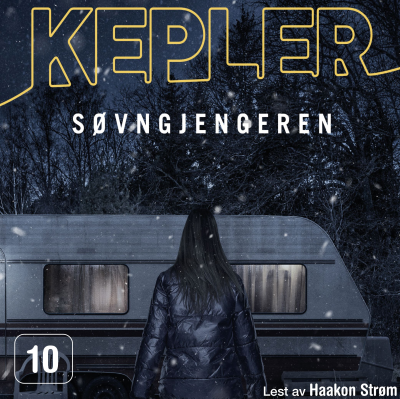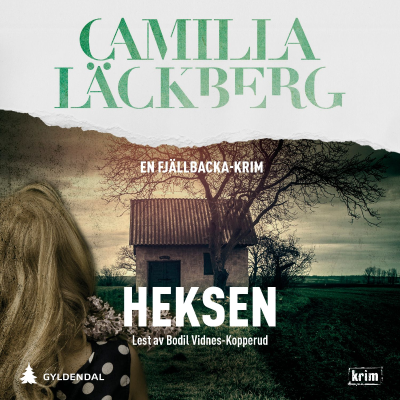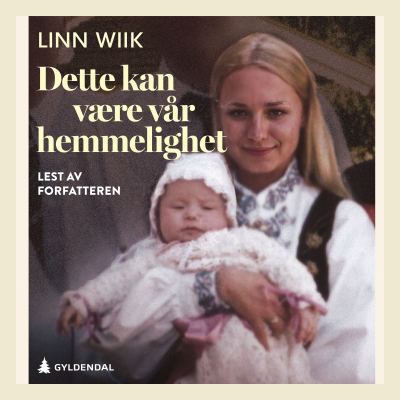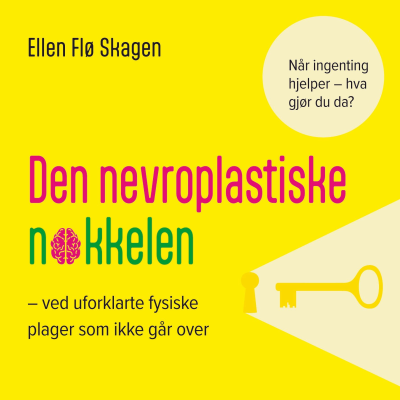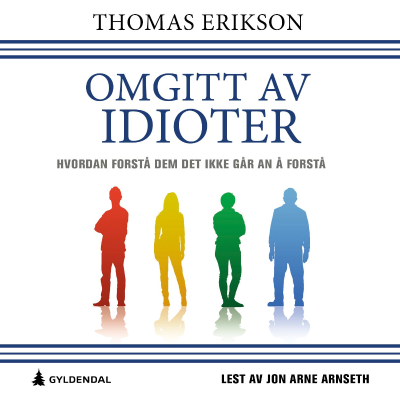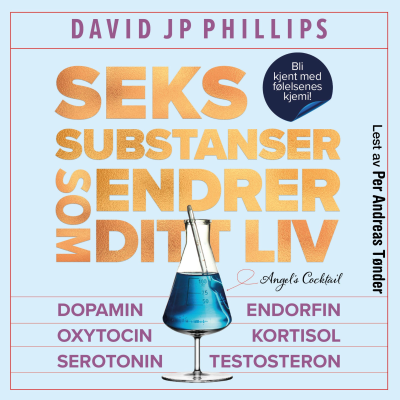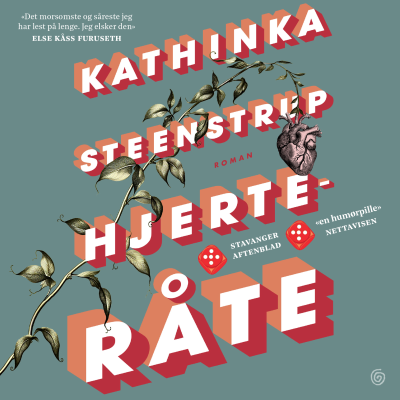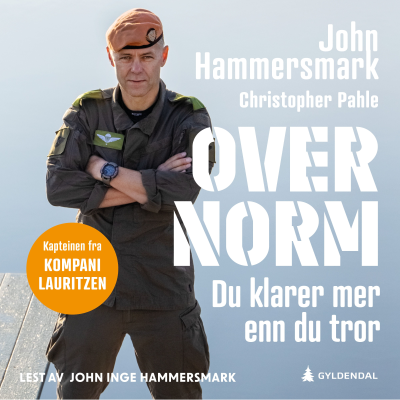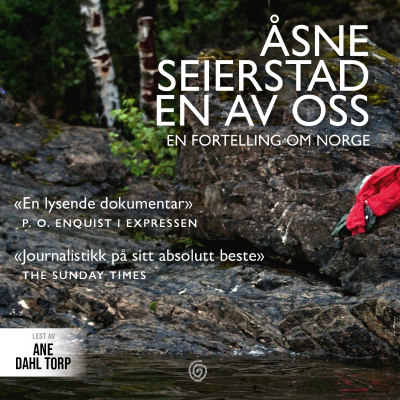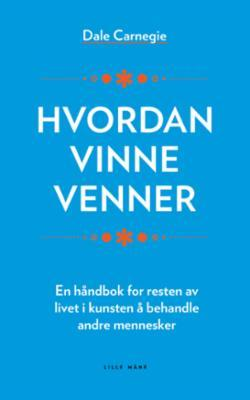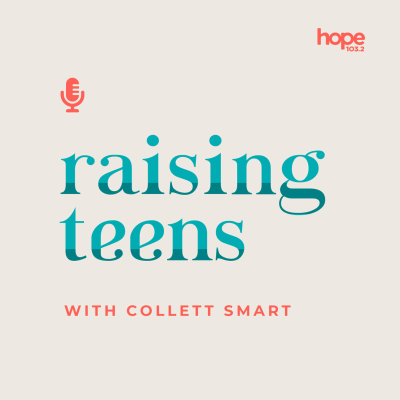
Raising Teens with Collett Smart
engelsk
Helse og personlig utvikling
Prøv gratis i 14 dager
99 kr / Måned etter prøveperioden.Avslutt når som helst.
- 20 timer lydbøker i måneden
- Eksklusive podkaster
- Gratis podkaster
Les mer Raising Teens with Collett Smart
When it comes to raising little ones, we often feel as though we have a small village around us – in morning play groups, meeting other parents at tots’ birthday parties, or on the sides of sports fields. It can feel like we have it (mostly) under control. Until our child gradually emerges into their teen years and so much changes! It is a unique time for both you and your child. Sometimes, everything you thought you knew goes out the window and you’re struggling to keep up. You look around and the village seems to have diminished. Raising Teens will be part of your support system – your village! There will be something here for everyone who cares for teens. Most importantly, this is your resource, so we want to hear from you – your challenges, your suggestions – you are part of this community. For more information, expert advice or to ask Collett a question, visit raisingteens.au. The information provided on this podcast is for general educational purposes only and does not take into account your personal situation. It is not a substitute for professional advice. We recommend you seek a medical or healthcare professional if you are seeking advice, diagnosis or treatment. Listen to more from our Hope Podcasts collection at hopepodcasts.com.au. And send the team a message via the Hope website, Hope 103.2’s app, Facebook or Instagram.
Alle episoder
100 EpisoderInvisible Mental Load: Why You're Exhausted Raising Teens
Key Points: * The "invisible load" involves the mental and emotional planning needed to keep a family running smoothly, disproportionately handled by mothers. * When recognised and verbalised, this load can be redistributed among the family, easing stress and fostering a more collaborative environment. * Collett emphasises how engaging teens in managing this load fosters their independence and reduces pressure on parents. * Small, strategic changes in task sharing can significantly lighten the invisible load, benefiting partners, parents, and teens alike. * Regular family meetings and the use of digital tools can help make the distribution of mental tasks more visible and equitable. Notable Quotes: 1. "The mental load is what the air traffic controller does…constantly monitoring all the aircrafts, anticipating possible conflicts." 2. "When the invisible becomes visible, it's much easier to share." 3. "Our teens don't need us to manage everything; giving them responsibility can actually help them grow." 4. "No one feels alone in holding it all when the invisible load is shared." 5. "This isn't about withdrawing our care from our families…it's about adjusting as our family needs change." Resources: * Connect with Collett Smart via her Instagram [https://www.instagram.com/collettsmart/] and Facebook [https://www.facebook.com/collettsmart] for ongoing support and insights. Support the show: https://hope1032.com.au/donate [https://hope1032.com.au/donate] See omnystudio.com/listener [https://omnystudio.com/listener] for privacy information.
Raising Teens with Disabilities: Support, Hope & Community - Hannah Gair
Hannah Gair StrongHER Side ebook [https://www.strongherside.com/hope-year-planner] - Available for free to listeners, providing tools and resources for mothers. Hannah Gair became a foster mum at 23, then had a son born with Fragile X syndrome. She's now raising three kids and knows firsthand the "pressure cooker" reality of supporting families with children with disabilities. In this conversation, Hannah shares practical strategies for raising teens with additional needs while still connecting with your other kids, how the broader community can genuinely help struggling families, and why 70% of disability caregivers experience burnout. She also opens up about navigating divorce, rebuilding life as a single mum, and creating StrongHER Side [https://www.strongherside.com/]—a community for the nearly one million Australian mums raising children with disabilities. Key Takeaways: * Parental Advocacy: Hannah's journey emphasises the critical role of parents in advocating for children with disabilities, both in terms of education and day-to-day life. * Importance of Support Structures: Family, community, and specialised education play vital roles in supporting children with disabilities and their families. * Self-Care Strategies: Hannah underscores the necessity of finding personal time for self-care, which can range from exercise routines to quiet journaling moments. * Navigating Emotional Complexity: Addressing the emotional and logistical complexities of raising children with additional needs, and how empathy and vulnerability foster resilience. * Building Awareness and Empathy: Encouraging proactive interactions and openness with individuals with disabilities to foster an inclusive environment. Notable Quotes: * "The best thing we can do as a mother is actually allow our children to reach their full potential." * "When somebody leans into their world and looks at her and displays empathy towards her and shows her support, then you're making her feel seen." * "He's trying to find a common place to have a conversation with you because majority of Aussies have a team that they follow." * "We are the product of our choices, and so it's being bigger than the most negative thought that you have." * "Every one of us want to feel seen. Every one of us are hardwired for connection." Resources: * StrongHER Side Podcast [https://www.strongherside.com/podcast] - A podcast designed to support mothers raising children with disabilities. * Hannah Gair StrongHER Side ebook [https://www.strongherside.com/hope-year-planner] - Available for free to listeners, providing tools and resources for mothers. Support the show: https://hope1032.com.au/donate [https://hope1032.com.au/donate] See omnystudio.com/listener [https://omnystudio.com/listener] for privacy information.
Neurodivergent Teens: 4 Back to School Strategies
Key Takeaways: * Predictability Matters: Building a predictable environment can significantly reduce stress for neurodivergent teens as they start a new school year. * Collaborative Support Systems: Engage teens in their support planning, which increases their comfort and trust in their school environment. * Focus on Emotional Regulation: Prioritise emotional well-being over academic performance to help teens cope with sensory overload and daily pressures. * Understanding Over Fixing: Embrace a mindset of curiosity and understanding rather than trying to fix perceived problems in teens' behaviors. * Home as a Safe Space: Ensure home remains a haven for recovery and support after the school day, helping teens decompress effectively. Notable Quotes: * "Predictability might look a little bit like getting back into sleep routines like we learned last week." * "The key is collaboration, not control." * "When school starts, it's easy to focus on their marks, but for our neurodivergent teens, emotional regulation really comes first." * "You don't need to turn your teen into someone else to help them succeed at school." * "When teens feel understood rather than managed, their stress drops and their capacity rises." Support the show: https://hope1032.com.au/donate [https://hope1032.com.au/donate] See omnystudio.com/listener [https://omnystudio.com/listener] for privacy information.
Teen Sleep Crisis: Expert Lisa Maltman's Tips for Tired Teens
Lisa Maltman [https://www.thesleepconnection.com.au/] brings sleep health education to thousands of Australian teens and parents. She reveals why 70% of teens aren't getting enough sleep, tackling technology designed to keep them scrolling, packed schedules treating sleep as leftover time, and sleep disorders mistaken for ADHD. Collett and Lisa discuss the "Can't Sleep vs Won't Sleep" framework, social jet lag from weekend sleep-ins, and why tired teen drivers are as impaired as drunk drivers. You'll hear practical tools like family sleep diaries, Connor's story of misdiagnosed sleep apnoea, and why "revenge bedtime procrastination" steals everyone's rest. Real solutions for tired teens. Key Takeaways: * Sleep is foundational for physical health, mental well-being, and academic and athletic performance. * Around 70% of teens fail to get adequate sleep, largely due to technology and time management issues. * Sleep disorders such as sleep apnea can profoundly impact behavior and mental health; professional help is available and recommended. * Maintaining consistent sleep schedules, even on weekends, can help mitigate "social jet lag" in teenagers. * Parents can model good sleep habits and assist teens in understanding the importance of adequate rest by engaging in open conversations about sleep. Notable Quotes: 1. "Sleep impacts so much, and ironically, the time I was working for a sleep company, I developed insomnia." 2. "Elite athletes will actually get someone to come in and talk to them about how improving their sleep will give them the competitive edge." 3. "The logical part of our brain's not really working, so we just go: 'whatever', and that cycle can continue." 4. "Because when you're tired, it is the same as being over the limit with alcohol." 5. "My biggest hope is that they all completely understand the impact that sleep has on their physical health, mental health, and performance." Resources: * The Sleep Connection [https://www.thesleepconnection.com.au/]: Lisa Maltman’s initiative, offering programs focused on educating students, parents, and corporations about sleep health. * Woolcock Medical Institute [https://www.woolcock.org.au/]: Leaders in Breathing and Sleep Research Support the show: https://hope1032.com.au/donate [https://hope1032.com.au/donate] See omnystudio.com/listener [https://omnystudio.com/listener] for privacy information.
Why This Psychologist Had to Hit Pause (And What It Taught Her)
Collett Smart wraps up the year with one of her most honest episodes yet. After taking time away from the podcast, she's back to share what really happened during her break – and it's not the polished story you might expect. In this vulnerable ep, Collett opens up about the reality of juggling her work as a psychologist, caring for elderly family members, and keeping her marriage strong after three decades together. She's refreshingly honest about not getting everything right and the importance of hitting pause when life demands it. For parents trying to balance caring for teens whilst managing their own challenges, Collett's candid reflections will resonate. This episode isn't just about Collett's personal journey – it's about the power of community and the impact your stories have had on families across Australia. Collett shares heartfelt feedback from listeners and how your questions and experiences have shaped the podcast into something truly meaningful. But here's the exciting bit: Collett reveals what's coming in 2026. The new season kicks off in the first quarter with impressive guests, insightful mini-episodes, and answers to your burning questions about raising teenagers. She's calling on parents, educators, and caregivers to keep sharing their stories because this podcast thrives on the wisdom of the village raising teens together. It's a genuine conversation about nurturing responsible, happy young adults whilst looking after yourself in the process. Have a great end of the year Raising Teens Family! Support the show: https://hope1032.com.au/donate [https://hope1032.com.au/donate] See omnystudio.com/listener [https://omnystudio.com/listener] for privacy information.
Velg abonnementet ditt
Premium
20 timer lydbøker
Eksklusive podkaster
Gratis podkaster
Avslutt når som helst
Prøv gratis i 14 dager
Deretter 99 kr / måned
Premium Plus
100 timer lydbøker
Eksklusive podkaster
Gratis podkaster
Avslutt når som helst
Prøv gratis i 14 dager
Deretter 169 kr / måned
Prøv gratis i 14 dager. 99 kr / Måned etter prøveperioden. Avslutt når som helst.

































